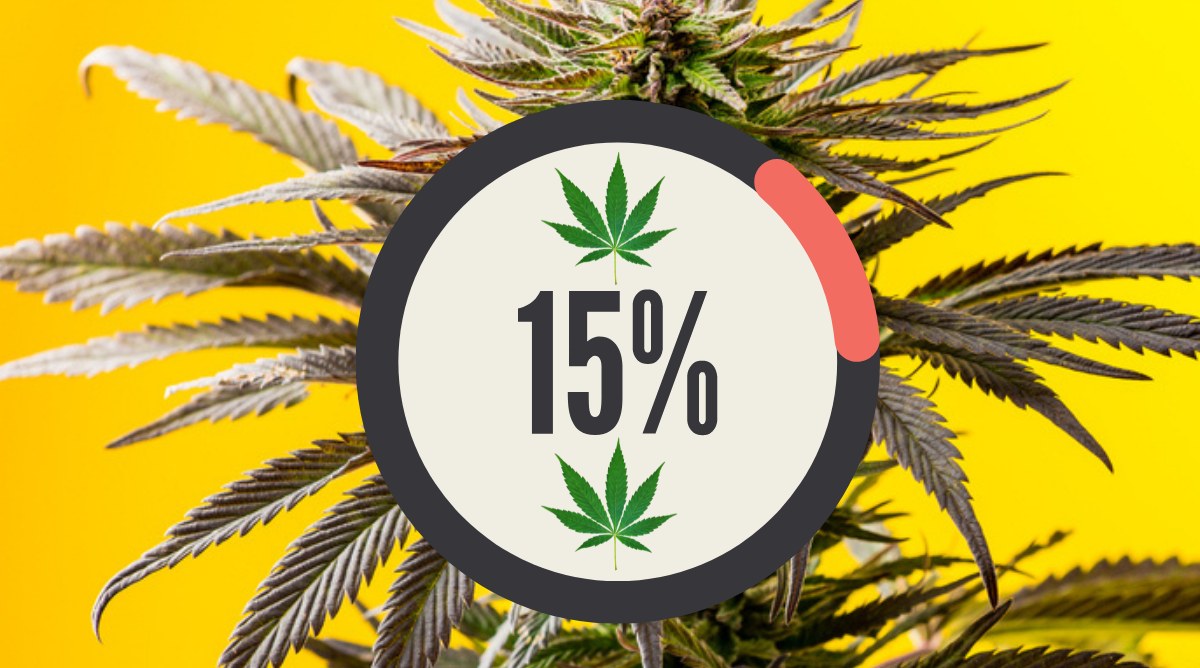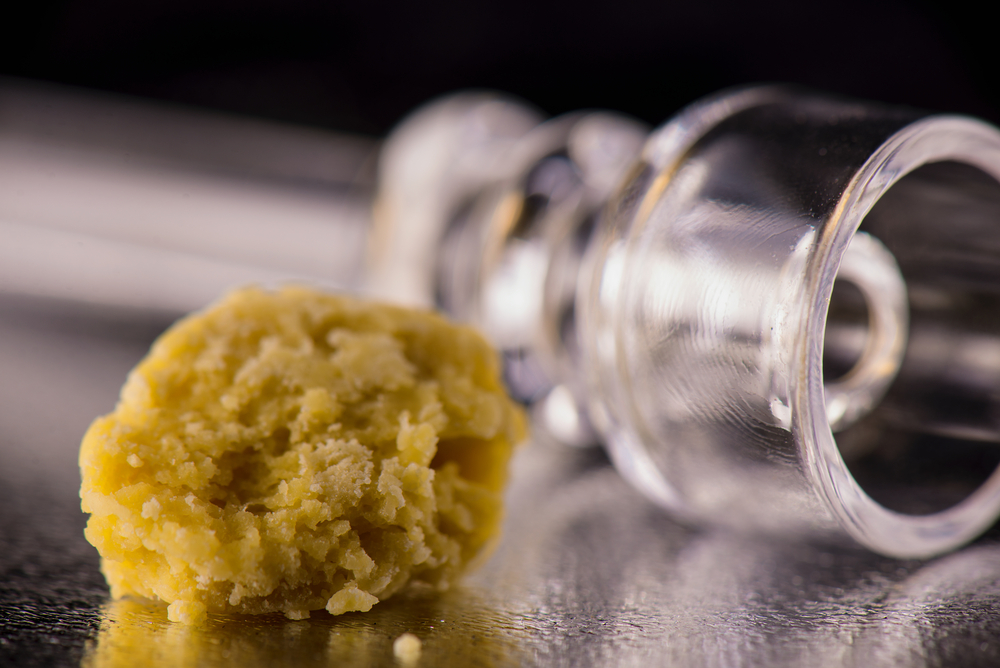
It took eight hours for thirteen representatives on the House Public & Behavioral Health & Human Services Committee in Colorado to unanimously approve House Bill 1317. We wrote an article on the battle brewing in Colorado to cap THC potency. And discussed how addiction and health harms caused by concentrated cannabis for minors, was the central motivation for drafting the new bill.
Read: “Why Does Colorado Want a 15% THC Cap?” and watch the NORML video with Colorado Representative Yadira Caraveo and Senator Paul Lundeen.
Westworld reported that on Tuesday, May 18th, lobbyists went into high-gear to prove a need for new legal potency limits. Particularly for concentrates. Public health policy groups, parents, and healthcare professionals have supported reform in Colorado’s medical marijuana laws. And there was overwhelming support for amending the current cannabis laws to restrict potency significantly. Not just for children, but adults too.
A unanimous vote from the House Public & Behavioral Health & Human Services Committee forecasts similar support in the Senate for marijuana legal reform. Many industry analysts are predicting that without public outcry over the cannabis reform, it may be made into law in 2021. And that means patients will not be able to get marijuana in Colorado that is higher than 15% potency. Without an appeal and the support of a primary care provider.
According to Westworld, more than 200 people registered to speak before the committee. In a single day, after the public notice on May 18th, 2021.

Concentrates seem to be the main concern for people and groups who are advocating for cannabis reform in Colorado. In March, the Denver Post called the changes the biggest overhaul in marijuana laws since recreational cannabis was legalized.
In Colorado, the shift from flower to high-potency concentrates has been fast. The Denver Post shared that in 2014, the medical and recreational cannabis that was sold in the state was predominantly flower. Only 11% of cannabis sales were for concentrates. But five years later, concentrates were the most popular cannabis product purchased. And whole flower sales accounted for less than 50% of all transactions.
The medical and off-label use of psychedelics was also legalized in Colorado, in 2019. And many people feel that psychedelic legislation may also be repealed. Some conversations about access to psychedelics or “Right to Use” legislation for patients in Colorado may also be threatened. This as the state seeks to reign in more control over high-potency alternative medicine options for patients. And for recreational users.
The rapid shift to concentrates as the sales leader for cannabis products in the state, has providers and parents very concerned. While cannabis does not appear to have health risks for adults, no longitudinal studies exist for daily use of high-potency products. But high levels of THC can alter and in some cases, impair cognitive development for children. Minors living in homes with medical cardholders may be at a higher risk of addiction and early use.
House Bill 1317, if it passes the Colorado Senate, would do more than lower the maximum potency of all THC products. Packaging to restrict the number of concentrates sold in dispensaries is at the top of the list. If House Bill 1317 passes the Colorado Senate, all types of concentrates for dabbing would have to comply with new packaging requirements. No more than 0.1 grams would be permitted.
Residents of Colorado aged 18-20 years may currently buy up to 40 grams of concentrates per day. House Bill 1317 would significantly lower the maximum purchase amount to 2 grams of concentrates. And only 8 grams of flower. And it would implement a new system to track purchases accurately. This would prevent “looping” or the practice of visiting multiple dispensaries to buy a greater volume of cannabis products.
For patients, tracking would be tied to the medical card (as it is in other states). For non-medical cardholders, however, the purchase tracking may be tied to their driver’s license.
Other states like Vermont have implemented a THC limit. In Vermont, whole flower cannabis is limited to 30% THC and 60% for cannabis concentrates and oils. The proposed 15% cap in Bill 1317 appears to be across the board for all adult-use and medical cannabis products. However, 18-20-year-old medical cardholders would not be impacted by the new measure, a sponsor of the bill.
Physicians could file special appeals on behalf of a patient with a chronic or terminal condition. That would allow the patient to access higher potency cannabis products.
One of the other upsetting changes with the proposed House Bill 1317 is removing telemedicine as an option. Patients can schedule a telemedicine health evaluation with a care provider or practitioner. And right now, it can happen online, through a secure server and video conference between patient and doctor.
During a telemedicine health evaluation, the physician reviews health history, supplements, and medications for the patient. This helps provide an extra safety step to ensure that medical marijuana is not contraindicated. Or something that may conflict with prescriptions the patient may be taking.
The interview with the practitioner also reviews lifestyle information, including history (if any) of drug abuse or criminal charges involving cannabis. Specifically, distribution and violent crimes may make a patient ineligible to be authorized for a medical card.
But some healthcare providers feel that the medical card interview and health history review should only be conducted in person. And that the patient should be required to provide a digital copy of 1-3 years of health history for review.

Groups in favor of cannabis legislative reform in Colorado feel that telemedicine is too casual and informal to provide a comprehensive evaluation. And that it is “too easy” to get a medical card currently in Colorado. The new laws may be modeled after states that require a physician relationship (more than one visit) to refer a patient for medical cannabis.
If you are a patient or caregiver living in Colorado and oppose the changes that Bill 1317 will make to medical cannabis laws, now is the time to be heard. Just as more than 200 lobbyists and advocates voiced their support for a THC cap and other restrictive reform laws, you have an opportunity to make a difference.
The Colorado School of Public Health is required to submit a report on the impact of high-potency marijuana products by July 2022. From that report and public feedback, policy recommendations and amendments to Bill 1317 will happen. There is an opportunity to be heard before the final drafting of the legislation.
Sponsors of Bill 1317 in Colorado are:
Featured Image: Yarygin | Deposit Photos
No Information on MarijuanaDoctors.Com should be used to diagnose, treat, prevent or cure any disease or condition. You can view our Full Disclaimer here.